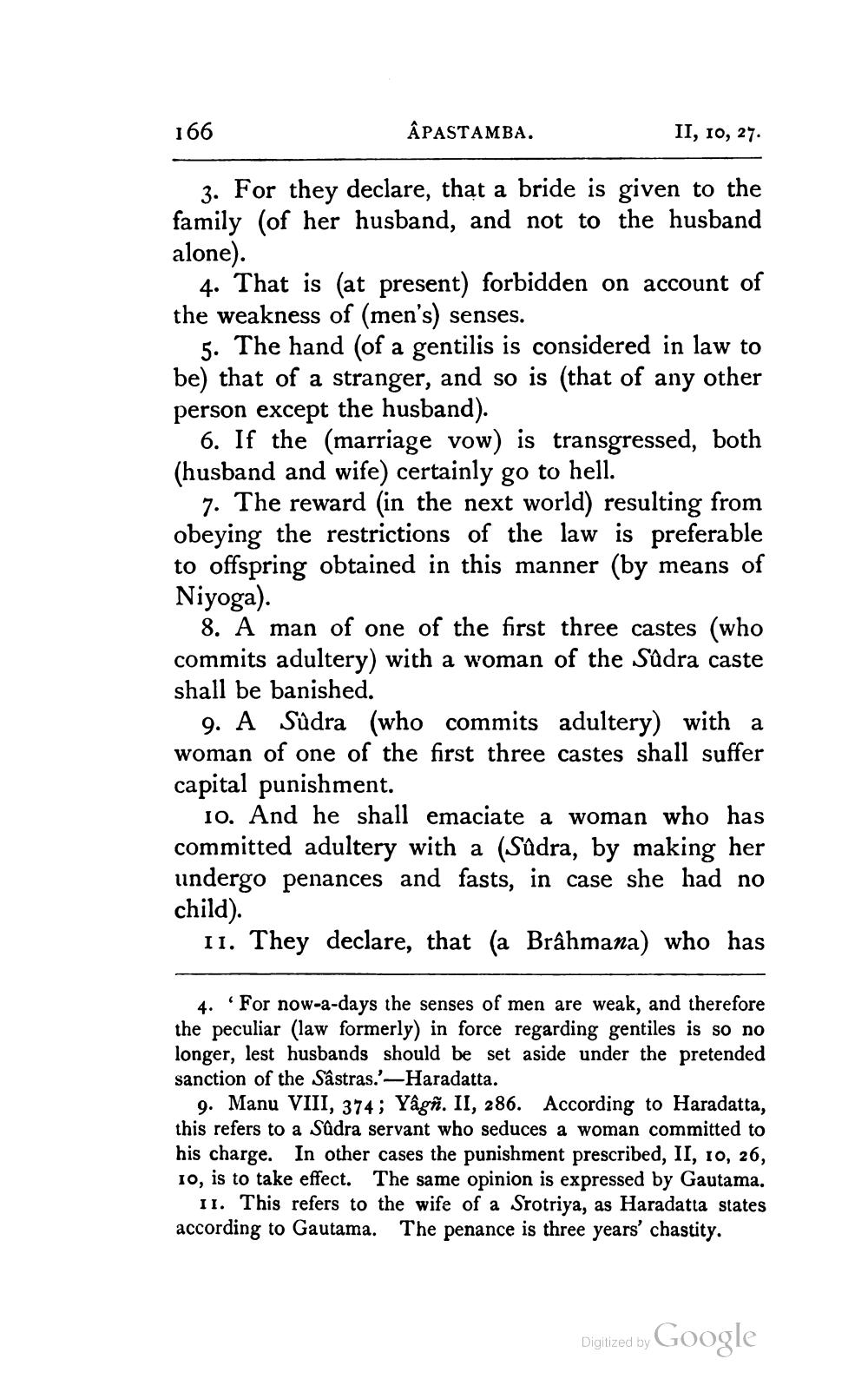________________
166
ÂPASTAMBA.
II, 10, 27.
3. For they declare, that a bride is given to the family (of her husband, and not to the husband
alone).
4. That is (at present) forbidden on account of the weakness of (men's) senses.
5. The hand (of a gentilis is considered in law to be) that of a stranger, and so is (that of any other person except the husband).
6. If the marriage vow) is transgressed, both (husband and wife) certainly go to hell.
7. The reward (in the next world) resulting from obeying the restrictions of the law is preferable to offspring obtained in this manner (by means of Niyoga).
8. A man of one of the first three castes (who commits adultery) with a woman of the Sûdra caste shall be banished.
9. A Sudra (who commits adultery) with a woman of one of the first three castes shall suffer capital punishment.
10. And he shall emaciate a woman who has committed adultery with a (Sûdra, by making her undergo penances and fasts, in case she had no child).
11. They declare, that (a Brahmana) who has
4. For now-a-days the senses of men are weak, and therefore the peculiar (law formerly) in force regarding gentiles is so no longer, lest husbands should be set aside under the pretended sanction of the Sàstras.'-Haradatta.
9. Manu VIII, 374; Yâgñ. II, 286. According to Haradatta, this refers to a Sudra servant who seduces a woman committed to his charge. In other cases the punishment prescribed, II, 10, 26, 10, is to take effect. The same opinion is expressed by Gautama.
II. This refers to the wife of a Srotriya, as Haradatta states according to Gautama. The penance is three years' chastity.
Digjized by Google




